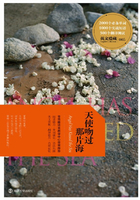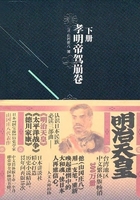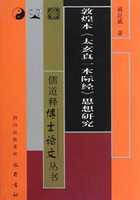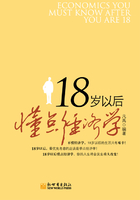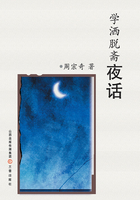Sorrows of the Millionaire
?佚名 / Anonymous
The millionaire class, a small but growing one into which any of us may be flung tomorrow by the accidents of commerce, is perhaps the most neglected in the community. As far as I know, this is the first tract that has ever been written for millionaires.
In the advertisements of the manufacturers of the country, I find that everything is produced for the million and nothing for the millionaire. Children, boys, youth, gents, ladies, artisans, professional men, even peers, and kings, are catered for; but the millionaire’s custom is evidently not worth having; there are too few of him. Whilst the poorest have their Rag Fair, a duly organized and busy market in Houndsditch, where you can buy a boot for a penny, you may search the world in vain for the market where the 50 pounds boot, the special dear line of hats at forty guineas, the cloth of gold bicycling suit, and the Cleopatra claret, four pearls to the bottle, can be purchased wholesale.
Thus the unfortunate millionaire has the responsibility of prodigious wealth without the possibility of enjoying himself more than any ordinary rich man. Indeed, in many things he cannot enjoy himself more than many poor men do, nor even so much; for a drum major is better dressed; a trainer’s stable lad often rides a better horse; the first-class carriage is shared by office boys taking their young ladies out for the evening; everybody who goes down to Brighton for Sunday rides in the Pullman car; and of what use is it to be able to pay for a peacock’s brain sandwich when there is nothing to be had but ham or beef?
The injustice of this state of things has not been sufficiently considered. A man with an income of 25 pounds a year can multiply his comfort beyond all calculation by doubling his income. A man with 50 pounds a year can at least quadruple his comfort by doubling his income. Probably up to even 250 pounds a year doubled income means doubled comfort. After that the increment of comfort grows less in proportion to the increment of income until a point is reached at which the victim is satiated and even surfeited with everything that money can procure. To expect him to enjoy another hundred thousand pounds because men like money, is exactly as if you were to expect a confectioner’s shop-boy to enjoy two hours more work a day because boys are fond of sweets. What can the wretched millionaire do that needs a million? Does he want a fleet of yachts, a Rotten Row full of carriages, an army of servants, a whole city of town houses, or a continent for a game preserve? Can he attend more than one theatre in one evening, or wear more than one suit at a time, or digest more meals than his butler? Is it a luxury to have more money to take care of, more begging letters to read, and to be cut off from those delicious Alnaschar dreams in which the poor man, sitting down to consider what he will do in the always possible event of some unknown relative leaving him a fortune, forgets his privation.
And yet there is no sympathy for this hidden sorrow of plutocracy. The poor alone are pitied. Societies spring up in all directions to relieve all sorts of comparatively happy people, from discharged prisoners in the first rapture of their regained liberty to children reveling in the luxury of an unlimited appetite; but no hand is stretched out to the millionaire, except to beg. In all our dealing with him lies implicit the delusion that he has nothing to complain of, and that he ought to be ashamed of rolling in wealth whilst others are starving.
百万富翁是个人数虽少却在不断壮大的阶级。我们中的某些人或许明天就会交上财运,跻身于百万富翁之列。同时,也许它也是社会群体中最不被重视的阶层。据我所知,这是第一篇写百万富翁的文章。
在国内生产商的广告中,我发现所有的产品都是以百万大众为消费对象,而不是百万富翁。儿童、少年、青年、绅士、淑女、工匠、专业人士,甚至贵族和国王都是生产商迎合的对象,但由于百万富翁稀有,这一群体显然最不能引起生产商的兴趣。然而,就连最穷的人也有属于他们的旧货市场。比如,Houndsditch就有定期组织的热闹集市,在那里你花一美分就能买到一只靴子。但整个市场你都不会批发到一只标价50英镑的靴子,或是标价40金币的昂贵特制帽子绳,或是金线织成的自行车服布料,或是四颗珍珠换一瓶的克里奥帕特拉红葡萄酒。
因此,不幸的百万富翁们虽然拥有巨额财富,却无法比普通的有钱人更享受自己的生活。实际上,在很多方面,他们都不能比穷人更多地享受生活,甚至还不如穷人。因为乐队指挥的着装要求会更加严格;驯马师的马童也可以骑上品种优良的骏马;小职员可以和年轻小姐一起乘坐上等马车在晚上出游;每个人都会乘坐普尔曼式列车去布赖顿过周末;如果只剩下火腿和牛肉,就算买得起孔雀脑三明治又有什么用呢?
诸如此类的不公平还没有引起人们的足够重视。对于年收入25英镑的人来说,收入增加一倍,生活的舒适度会增加无数倍。年收入50英镑的人收入增加一倍时,生活舒适感会至少增加四倍。而年收入高达250英镑的人,收入增加一倍时,他的舒适度可能会增加两倍。收入的增长与所拥有的舒适感成反比,直到某一个基点,人们会厌倦金钱能买到的这一切。爱钱的人们以为多拥有十万英镑,自己就会开心,如同因为糖果店男孩喜欢糖果,就期望他们会乐意多工作两小时一样。就算拥有百万家财,可悲惨的百万富翁能用这些干什么呢?一个舰队的游艇,星罗棋布的马车,一大群仆人,整个城市的房屋,或一个洲的狩猎场,这些难道是他想要的?难道他能同时穿几套衣服,一晚上去几家剧院,或比厨子多吃几顿饭吗?清点大量现金,阅读更多的求助信,失去一个穷人能拥有的美梦,难道这些都是奢侈吗?美梦中的穷人可以忘记自己的贫困,可以坐下来幻想有不认识的亲戚会突然为他留下一大笔财产。
然而,富翁们背后的悲哀是得不到同情的。我们只会同情那些穷人。从释放囚犯让他们获得自由,到让孩子们尽情享受美食,为了让各种各样的人快乐起来,社会想尽办法。然而除了乞讨之外,没人会向百万富翁伸出援助之手。在与富翁们的交往中,我们总会想他们不应该抱怨,而应该感到羞愧,因为在他们的财富蜂拥而来时,其他人正忍受着饥饿。
1. The millionaire_______, a small but growing one into which any of_______may be flung tomorrow_______the accidents of commerce, is perhaps the _______neglected in the community. As far as I know, this is the_______tract that has ever been written for millionaires.
2. After that the increment of comfort_______less in proportion to the increment of income until a point is reached at_______the victim is satiated and even surfeited with_______that money can procure.
1. 因此,不幸的百万富翁们虽然拥有巨额财富,却无法比普通的有钱人更享受自己的生活。
2. 诸如此类的不公平还没有引起人们的足够重视。
3. 因为在他们的财富蜂拥而来时,其他人正忍受着饥饿。
1. As far as I know.
as far as:就……而言;至于;远到
2. Is it a luxury to have more money to take care of?
take care of:照顾;照料;照看



